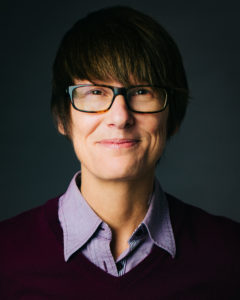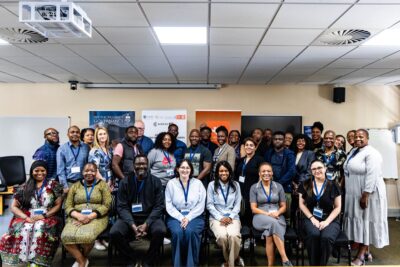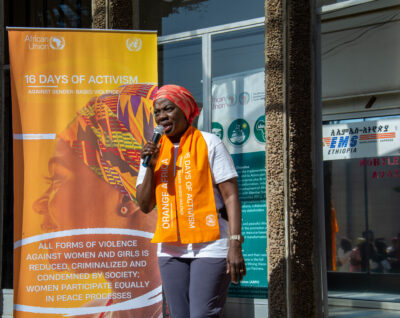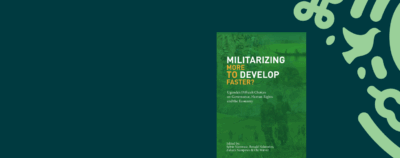As part of ongoing conversations on research methods in digital work, researcher Mary L. Gray looks back on her time in the SSRC’s Sexuality Research Fellowship Program and how it informs her work today, including her latest book, Ghost Work. She discusses the importance of ethnographic work in conjunction with quantitative methods, how discourse around content moderation conflates sexually explicit imagery and violence, and what we can all learn from queer studies in order to better inform practices around technology and labor.

Mary L. Gray is a senior principal researcher at Microsoft Research. She maintains a faculty position in the School of Informatics, Computing, and Engineering with appointments in anthropology and gender studies at Indiana University. Her most recent book, Ghost Work: How to Stop Silicon Valley from Building a New Global Underclass, coauthored with Siddharth Suri (Houghton Mifflin Harcourt, 2019). Her other books include Out in the Country: Youth, Media, and Queer Visibility in Rural America (NYU Press, 2009), and the coedited volume Queering the Countryside: New Frontiers in Rural Queer Studies (NYU Press, 2016). Gray is recognized as a leading expert in the emerging field of AI and ethics. She chairs the Microsoft Research Ethics Review Program—the only federally registered review board of its kind in tech. She was appointed to the California Governor’s Council of Economic Advisors and currently sits on several boards, including Public Responsibility in Medicine and Research (PRIM&R) and Stanford University’s One-Hundred-Year Study on Artificial Intelligence (AI100) Standing Committee.
Before delving into your book Ghost Work, I wanted to look back on your time in the Sexuality Research Fellowship Program (SRFP) here at the Council. Since the fellowship, you’ve gone on to work on wide range of topics. Some of it is related to gender and sexuality, but some of it isn’t. How do you see the work you did during the fellowship informing your work now? Was it a smooth transition? Are they related? Or, are they just separate passions that you’re exploring?
That’s such a great question. It goes to the heart of the issue: Do we have language for what it means to think of genders, sexualities, marginality, and queering as core to intellectual interrogation of normative expectations of how the world operates? For me, what ties my work together is asking what constitutes our visibility; what constitutes our capacity to have agency and see that as always a kind of incomplete project that no individual ever controls on their own?
When I got this fellowship, all my mentors said, “You’ll never find a job.” The idea of taking an ethnographic approach to understanding the construction of queer identification and dis-identification, vis-à-vis the internet, with vectors of youth and location was new. How will my work fit within a mainstream disciplinary lane? The SRFP fellowship was quite literally a saving grace. I had no funding, unless I picked up a lot more catering gigs. The fellowship didn’t operate within a very narrowly defined disciplinary lens. It underwrote, again quite literally, my ability to argue that interrogating distributed systems that are technical—the internet or social media, as it was coming to the fore—and its relationship to our intimate selves was going to take a different methodology.
It was going to take fusing different analytical lenses that were already clearly defined: sociology of sexuality, sociology of gender, anthropology of gender and sexuality, geography, human geography. But while all these disciplines are necessary, they were not sufficient in and of themselves. And so the relationship between my prior work and my work now—really all the projects I take on—is taking very seriously the necessity to approach constructions of sexualities and genders as cases of, but also distinct moments of, instantiating who we are, which is always a social process, always shot through with power. At the time, Gay and Lesbian studies—with a capital “G” and capital “L”—was fairly well established, even if it was marginalized within the academy. But I think we, as social scientists, were just coming into our own. My cohort and cohorts before and after me were really attempting to say with our work, “We really have to have an approach that will constantly destabilize the unit of analysis.” This could be done in a rigorous way, but it’s not going to be a doable process of critical interrogation if we’re not really redrawing the map of how to navigate the study of gender and sexuality. That’s exactly what this fellowship allowed.
In terms of how queer studies and queer theory have developed, do you think that sort of ethnographic approach has been embraced? Or do you think we need another injection of that approach?
We need another injection. It was just hitting a stride, but there were so many other forces at work against a methodology that is ethnographically driven. That was also, I think, something quite unique about the funding. Whether it’s historical work or ethnographic work, it was longitudinal. It’s empirically rich. It’s not to say queer theory, cultural studies, and the approaches within, primarily, critical studies—often embedded or drawing on literary studies as methodology—are not incredibly valuable. But they’re not enough.
It really breaks my heart that now across the academy—not only within queer studies or women and gender studies—there’s little support for work that isn’t kicking out a bunch of articles every year. You literally are building relationships as the foundation of your empirical critique—you have to build relationships with people, and people take time.
I think we’re underestimating how much is lost by not recognizing how confined graduate students are now. However, if you want to study youth, criminal justice, or any topic through the lens of sexuality studies, it takes time to develop a methodology that is robust, ethical, and responsible to the people who are informing our research. I’m anxious because I see so many of my students unable to do that work, and if they do, the costs are becoming so high. I think anthropology, and some sociology programs, are the last bastions of being able to legitimately argue that every student will likely take a year to gather the empirical material rather than writing in a year. I’m so appalled in moments. I’m so worried for us all—what is being flung on the table as a way of moving our theory, which, for me, theory building is about intervention.
I don’t think I was different, but the fellowship encouraged us to think about what we were doing as a way of building out scholarship for social change. And that gets lost, or rather, it’s not an explicit message. Graduate students understand what they’re supposed to do, which is: get in, get out quickly, have some publications. This is killing us.
That’s especially relevant and worrying in terms of working in the digital space and in the data space. All the things you’re saying about queer studies very easily translate into the data space as well.
Exactly, it’s a canary in a particular coal mine, or a bellwether, when we do this work that centers the hard-to-reach places precisely because people have put up barricades to protect themselves. To your point, 100 percent of the methodologies we develop in queer studies are relevant to anything more broadly; nobody should imagine they’re removed from thinking about gender and sexuality just because they’re in digital studies. Those are exactly the places where I see a reproduction of anything that’s a modifier of ethnography—“netnography” or “digital ethnography”—where you’re pretty much just surveilling people’s social interactions. That’s so toxic to queer studies. And we know why.
I want to pick up on this ethnography thread in terms of big data. There was this huge boom of big data, “Oh, big data! It’s gonna solve all our research problems.” But there’s been pushback against that approach that seeks to look at small data, the specific. I wonder if you can speak to how you think ethnography and aggregate data work in concert? What would an ideal conversation between those two things look like?
I’m smiling because I feel like that’s exactly what I was trying to take up in the most recent project. My thinking on this has evolved. In some ways, I was certainly one of those people making a case that ethnography is small data that gets in the cracks that big data overlooks.
“We need ethnography to understand large-scale data.”Now more than ever I’m convinced that ethnography is critical to understanding the contexts that shape aggregated data. We need ethnography to understand large-scale data. I learned this working with my colleague computer scientist, Sid Suri. Our work together taught me to see the value of measurement and how to define a metric through qualitative insights. It’s useful to know how many people have posted what, for example. I’m constantly asked, “How many people are we talking about?” Whether we’re talking about young people coming out online or talking about how many people are doing contract work across the world, there’s a computational or a quantitative approach to that question. Most of the questions that have to do with, “What does that mean to people? How does that change their sense of self? What are the other material conditions, the context, that matter in the kinds of problem-solving we’re often moving toward?” That’s where qualitative, ethnographic work is most useful.
This is nothing new. If we go back to the science wars1The “science wars” was a decades-long debate in the social sciences, hitting a critical point in the mid-1990s, about the best way to evaluate claims in the social sciences. The positivist camp felt strongly that all science, including the social sciences, should depend on falsifiability and hypothesis-testing through quantitative studies. The other camp felt that social scientific insights are interpretative and inductive, as well as shaped by social forces and debates. See Keith Parsons, ed., The Science Wars: Debating Scientific Knowledge and Technology (Amherst, NY: Prometheus Books, 2003); Jay A. Labinger and Harry Collins, eds., The One Culture?: A Conversation about Science (Chicago: University of Chicago Press, 2001); and James R. Brown, Who Rules in Science? An Opinionated Guide to the Wars (Cambridge, MA: Harvard University Press, 2001).—particularly within sociology, because it has had this very explicit fight between quantitative and qualitative approaches to the study of agency, structure, and institutions—there have been disciplines that have had this debate. The place I think we could take it now is recognizing not just their complementarity as methodologies or frameworks, seeing places where there are limits.
Most quantitative efforts are about a causal statement. “I wanna show if I measure X and change it by Y factor, I get Z.” This is such a problem-solving, solutionist way of using a methodology.
Two things: I think ethnographic work, and anthropological work particularly, until recently has shied away from asking about its approach to problem-solving. It has been to point out what’s wrong, and that’s incredibly important: to point out all of the conditions under which, as a kind of a probabilistic statement, you might say, “Here are the possibilities of what’s going on here, and how people are making sense of what’s going on here.”
So, the two things are: (1) in qualitative work, we don’t know how to frame our work constructively as a “here’s what you could do instead”; (2) we don’t know how to iterate with quantitative findings to be able to look at quantitative approaches, computational approaches, and uses of big data, not just as an object but as a methodology, to use it to say, “How would I then iterate the questions that I’m asking?” That’s the place where we’re just beginning to do that; we’ve never had the tools to—and it’s just not a tooling question—but precisely that we can look at measurements of social interaction that we’ve never seen before, and to see that not as an endpoint or a finding in and of itself, but a starting point to really important social questions. I’m excited about it. For queer studies, for so many areas of social analysis, we now have potential partnerships here to look—not in a positivist way—at the human condition and engage it differently: that’s amazing.
However, there are so many ways in which the university does not incentivize collaboration. To your earlier point, in terms of evaluating our output, we’re disincentivized from collaborating because it’s incredibly costly. I just experienced that for seven years; it’s a lot of work to learn another discipline, to be literate in several different disciplines so to be an effective bridge and translator of your own approach.
Tiring. Who wants to do that? Who has time to do that? That’s where I now see the early enthusiasm across the humanities for “big data.” It overestimated the value in some sort of take-it-for-granted-you’re-seeing-ground truth. There’s a techno-fetishism in it that was never interrogated, even by people trained to interrogate that. And the folks, including myself, doing qualitative work too quickly let ourselves believe that in that complementarity what we offered was smallness.
I want us all to get out of calling this “big data.” It’s data. Data is about “human-factors engineering,” a label for thinking about what it looks like to contextualize the social in technical systems.
There’s a growing body of scholarship on the blind spots of machine learning that could play into this. You have great books, Safiya Noble’s Algorithms of Oppression and Meredith Broussard’s Artificial Unintelligence among them, that explore how these technologies and algorithms learn from huge datasets yet end up reinforcing social inequalities in various ways.
I was really struck by what your work might do in conversation with those. And I wonder if you have thoughts on how specifically this book, Ghost Work, and your work broadly, could converse with that.
This is where queer theory is the most valuable. These are not blind spots. They’re productions of ways of seeing, and they’re power relationships. Safiya gets that, so does Meredith. It asks not just how do scholars communicate to a general public, but more narrowly to a set of disciplines that need to talk with each other about the production of bias. The next move is to see how those measurements of particular kinds of outcomes are points of inquiry. They literally surface the places where there are a set of normative assumptions. That to me is qualitatively different than a blind spot because it suggests that once you shine some light on it, like bleach, it’ll clean us, clean our souls of bias. And queer studies, queer theory, is so equipped to say, “This is a construction of relationships of centers and margins.”
Depending on your flavor of queer studies, there’s no liberation; there’s no liberatory moment from that. It’s not about that. Queer studies is precisely about convening a conversation about hegemonic power that allows us to see our participation in circulating inequality and hierarchy. And, instead of trying to get rid of it, to see the inevitability of the need to constantly confront that.
From where I sit, I get to meet these really amazing early-career scholars in computer science and engineering. There is a set of them who absolutely arrive at that precipice and say, “Wait a minute. It’s not just in the data; it’s in society—all this bias.” They have yet to be trained in what to do with that revelation. And, returning to our earlier conversation, their orientation is toward problem-solving; they’re looking to fix the bias with technology. Working together, we can recognize that technology isn’t a fix but a mechanism, a diagnostic.
How do we turn it into a diagnostic tool? It could be used to facilitate very hard conversations—that is the rationalist in me that thinks this is about conversation, but I’m going to hold onto that for a while. That’s where we could go. And, in conversation with scholars like Meredith and Safiya, to be able to point out that technology can’t get more intelligent, it can’t get less oppressive. As much as we need a paradigm that addresses the presence of oppression as a constant, it will need to define the presence of intelligence of a particular kind as ignorance.
In terms of, as you said, constantly confronting the fact that you are participating in these systems, and being aware of that by this work, I see a lot of pushback against content moderation through AI and in favor of more human moderators, “more real people.” And, as you point out in your book, that often means relying on Mechanical Turk and this ghost labor.
You end your book with a lot of recommendations for various companies, but also users. What can you do with knowing that under the system that we know is bad there is another system that is also bad? What’s the move from there? Is there one? Or is it about that knowing?
I think the most important thing is that we don’t stop at just knowing. Where we ended the book didn’t engage in conversations with how to push it further. That might be me apologizing for where I feel the book falls short.
But I want to back up a second because I think in some ways the goal of the book was to explain in very plain terms why it would be necessary to have people be part of evaluation in order to facilitate deliberation. The biggest problem is: there’s no deliberation in content review. There could be. We should be thinking about how there’s no way to be able to have these large systems that bring people together and expect that somehow there’s going to be a clear enough way for exchange and engagement without people there facilitating. It is literally to call us to recognize the need for facilitation of human engagement.
The other thing that’s quite striking to me concerns where queer studies is. I haven’t written about this and I need to: I’m so frustrated by the conversation on content moderation, which frames it as pitying those who have to look at this disgusting material.
Some analysis could be useful here to understand if there’s an obvious conflation of sexual material and hate speech with regard to the type of content being moderated. How those two get thrown into the same bucket and how both get flattened is so ripe for a queer analysis. In fact, most of the assumption that content moderation must be horrific because you’re looking at sexual content goes unexamined, unanalyzed, taken for granted when empirically, looking at it ethnographically, what are people’s experiences of engaging that material? Myriad.
Some people find it pleasurable. Some people find it fulfilling because they feel like they’re cleaning up the internet. All of that is going to be in the mix. And so, the assumption that there is something intrinsically detrimental about the content should be a place we as theorists and scholars say, “Wait a minute, there’s nothing inherently bad or good about content.”
It is again an instantiation of a host of social relationships that then are engaged in that moment of looking. If I move it forward from there, these social relationships are work conditions. So, it’s not that the job is bad—the work conditions are bad.
How do we get people to realize that what’s bad about this job is not the content people see; it’s that we don’t respect and appreciate the work somebody’s doing to manage what would otherwise be a flood of all this material in front of everyone. We’re letting it have a cultural charge, a sexual charge, that is being tagged as bad.
Let me take up the other part of your question. As consumers, knowing there are people doing this work, if one values this work (probably the hardest part)—meaning people appreciate an internet without floods of spam and everything else content reviewers and moderators are shelving for evaluation—and if one values knowing where the information we consume comes from then better work conditions are necessary. No, the best solution is building out a healthy information ecosystem to make sure the work conditions of the people who are managing that information is sustainable.
But, we don’t even know they’re there so we can’t even begin that process. Knowing is not a matter of saying, “This is awful. We shouldn’t have to have people in this loop. We’ve gotta get ’em out of this loop.” Knowing is actually accepting that we have built a system in which there is no route to automatically take them out of the loop. In fact, the route to automatically remove some of that material requires people.
When people tell me, “These are bad jobs, and it’s terrible that anybody has to do them,” most typically what I’m hearing is, “This is a job you would not like to do and you are in a privileged position not to have to do it right now.”
And that’s the place—getting our attention on that—it just feels—toward the next step, which is, “Okay, there are people who are willing and able to do this work; it’s necessary work; it’s work you don’t want to do; it’s work you value. Let’s make sure it can be done.”
Not valued by the market. That’s actually the critical point that now threads into every argument or presentation. This will not be solved by the market. This is a social question of how to value other people’s contributions to our lives.
I was really interested in something you surfaced in your book about these workers making their own communities, away from the platforms they work for. I thought that was very hopeful—that there was this way to build that social support system outside of the market, and outside of what was provided by their employers.
There is that natural, “We’re going to make this rewarding for each other.” I thought that was really fascinating.
It is. I’m just going to keep hitting that beat of queer theory that tells us there’s such deep sociality. Even in the antisocial, there’s still a sociality there. And core to that is the relationship to others. In this way, whether it’s Berlant or others thinking about a kind of cruel optimism that keeps us coming back.
I’m a relentless optimist. So when I see that move, from an anthropological analysis, what’s distinctly—well, it’s not so distinct—but to see the kind of tool that sociality becomes for our capacity to survive in the world, to build relationships as this mechanism, as a technology, in the most basic sense. That is our human history, and nonhuman, too.
“What I love about queer theory is that it gives us a point to say, ‘You’re making a set of assumptions about how we move in the world that runs counter to everything we understand about what constitutes us as humans.’”It’s always incomplete; it’s not some sort of silver bullet. But for queer studies, for me, it’s taking for granted that somehow that can be erased or dismantled by a technical force. I want to interrogate that approach. In fact, engineers were convinced that if they built a system where everybody could work independently, anonymously, they shouldn’t need to interact. What I love about queer theory is that it gives us a point to say, “You’re making a set of assumptions about how we move in the world that runs counter to everything we understand about what constitutes us as humans.” So, it’s not surprising, and yet it was the most profound finding, for engineers particularly. When I’m talking with economists, for example, they cannot believe people would mentor each other for free. They just can’t put together what we know from humanistic social sciences, which tells us it’s not truly free but an exchange.
It’s that notion of freedom, that liberal notion of freedom, creeping in the door that we know how to critique and know how to interrogate that other disciplines struggle to do.














